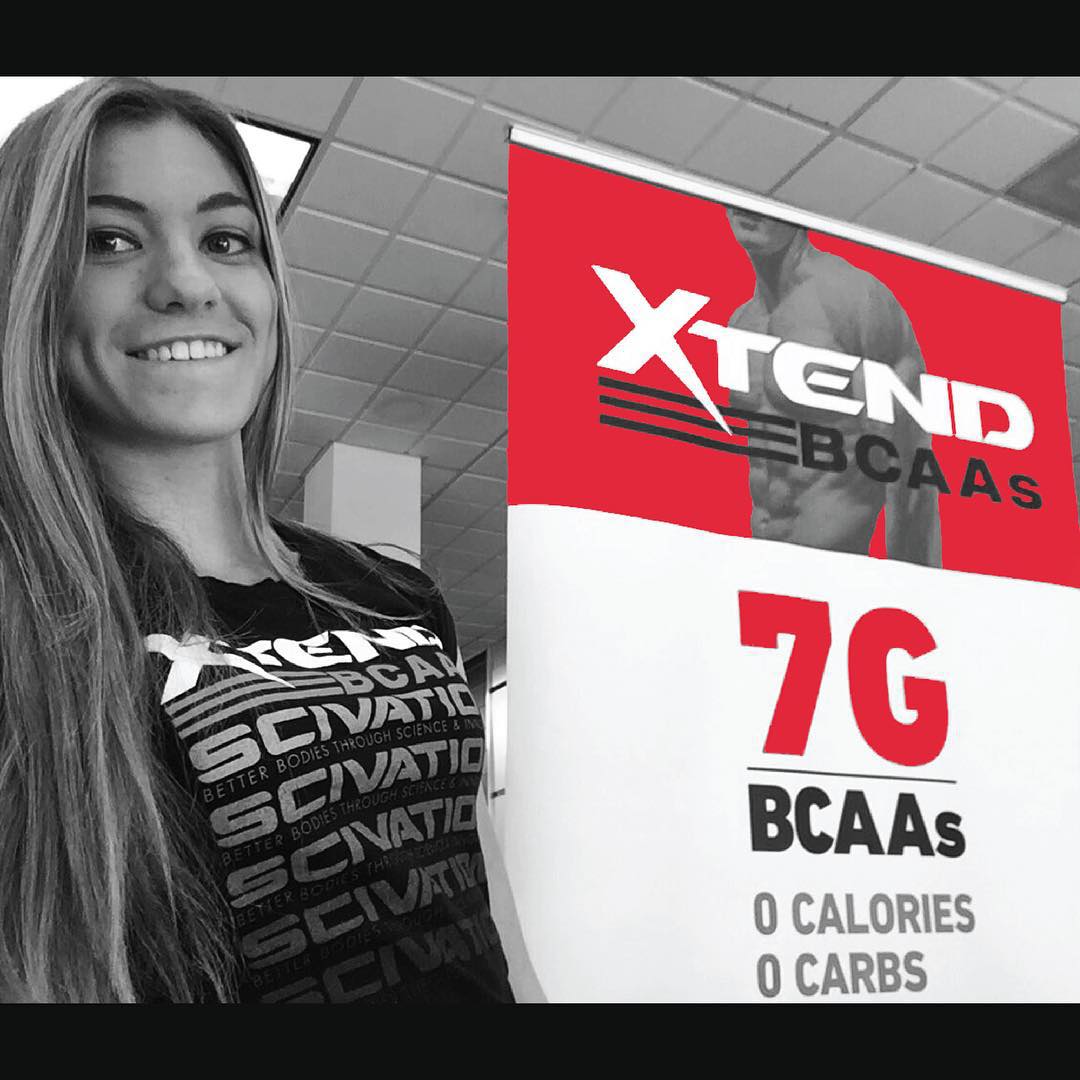
A new BCAA weight loss study funded by Scivation shows that BCAAs help maintain lean muscle mass and lose fat while on a cut. Featured is Featuring Team Scivation Athlete, Lauren @laurendannenmiller
BCAA supplements are some of the most popular products used in the bodybuilding and fitness arena. They’re extremely beneficial during times of caloric restriction as a means of preserving lean muscle mass while losing fat or while working out in a fasted state to prevent catabolism.
That’s not all though, BCAAs are also important for stimulating muscle protein synthesis and speeding recovery following intense workouts.[1,2]
The BCAA Debate
However, there’s been great debate among the various "broscientists" out there claiming that BCAAs simply aren’t that beneficial, provided you are meeting sufficient daily macronutrient intake in your diet. They claim that if you eat enough protein, BCAAs confer no benefits.
Well, a new study looking at BCAA supplementation in conjunction with a calorie restricted diet sheds new light on the hotly debated topic, published by Wesley David Dudgeon, Elizabeth Page Kelley, and Timothy Paul Scheett in the Journal of the International Society of Sports Nutrition.
But as we'll see, there's quite a few questions that have surfaced with this one.
The Latest BCAA Weight Loss Study Funded by Scivation
Seventeen resistance trained men between the ages of 21 and 28 volunteered to participate in the study. They were placed on an aggressive calorie restricted diet aimed at cutting body fat for a period of 8 weeks.[3]
Two Macronutrient Profile Rotations
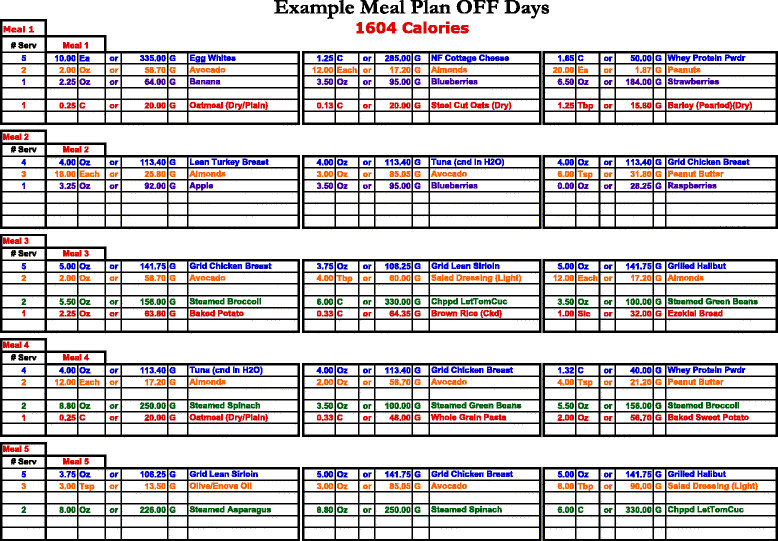
Here is an example of the daily diet of the test subjects who self-reported their eating during the 8 week trial.[3]
The group rotated between two different macro profiles during the course of the trial:
On training days, test subjects ate
- 30% carbohydrates
- 35% protein
- 35% fat
On non-training days, they ate
- 25% carbohydrates
- 40% protein
- 35% fat
Xtend vs. Powerade
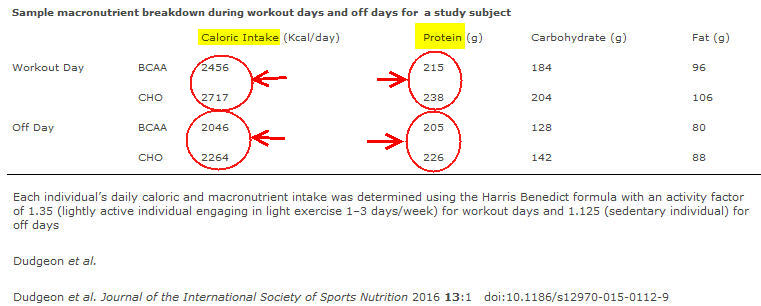
The two groups followed the same macro split but had varying caloric intakes depending on their height and weight.[3]
Each male was randomly assigned to either the BCAA supplement group or the carbohydrate beverage group. The BCAA group consumed a drink that contained 14g of BCAA pre workout and post workout, while the carb beverage group consumed Powerade contained an equivalent amount of carbohydrates prior to and following each workout, for a total of 28g of carbs.
Test subjects performed a bodybuilding split style resistance-training program 4 days per week during the course of the 8 week trial. Each male kept a training journal and returned at the 4 and 8 week mark to have the journals analyzed.
The Results
Update: These results have been called into question by Alan Aragon and Brad Schoenfeld, and it seems like they have found some legitimate errors.
Following the conclusion of the 8 week trial, all seventeen subjects reported back to the clinic for final measurements. Those in the BCAA group did not lose any body mass, but the carbohydrate group lost a significant amount (−2.3 ± 0.7 kg; p < .05). However, researchers claim that those numbers don’t tell the entire story.
It turns out that the body mass lost by the carb group was lean mass. The BCAA group maintained all of their lean mass during the aggressive 8 week cut, while the carbohydrate group lost lean mass (−0.90 ± 0.06 kg; p < .05) and body mass!
Then came the questions...
The issues found by Aragon and Schoenfeld, however, state that when it comes to body fat, The Xtend group lost virtually no fat at all (0.05kg), while the carbohydrate group lost 1.4kg!
The two famed researchers found several other issues, all linked in their critique here.
Back to the 'good' news, both groups showed increases in the 1RM squat, but the BCAA group saw an overall greater increase than the carbohydrate group. Additionally, the BCAA group increased their 1RM bench press while the carbohydrate group actually lost some strength on the exercise.
The one victory for the carbohydrate group was that they did increase their muscular endurance by increasing the number of repetitions to fatigue.
Scivation’s Comment
Following the release of the study and the great amount of buzz it generated around the various bodybuilding forums, we asked Scivation to see if they had any comment on the study. They responded with the following:
“The best physiologically possible body composition outcome for an individual performing resistance training while intentionally trying to lose body fat through restricting calories is to maintain their pre-diet muscle mass while losing fat mass. Very few athletes who often cut weight (e.g. MMA, boxers, wrestlers, dancers, etc.) are able to lose body fat without simultaneously losing muscle mass. These athletes often maximize muscle mass and muscular performance (e.g. power, strength) gains in the off-season as they know that they will lose a significant amount of muscle mass and muscular performance as they cut their body weight to achieve their target performance weight. A very low calorie supplement that could help these athletes maintain their hard earned muscle mass and muscular performance gains while still cutting body fat would be the ideal product to use for any person that is trying to gain or maintain their muscle mass and muscular performance.
The results from an independent university-based study showed that supplementation of Scivation’s Xtend in experienced weight trained athletes performing resistance training while on a caloric-restricted diet allowed the subjects to maintain their pre-diet muscle mass and preserve skeletal muscle performance while simultaneously losing fat mass.
The subjects using Scivation’s Xtend maintained their muscle mass while the subjects that used the placebo lost nearly 2 pounds of muscle mass. The subjects supplementing with Scivation’s Xtend lost 1.1 pounds of body fat while the subjects on the placebo didn’t have a significant change in body fat.
Performance wise, subjects using Xtend had a 3X greater increase in their lower body muscular performance (i.e. back squat) over the placebo subjects. In addition, the Xtend group significantly increased bench press strength by over 15 pounds while the placebo group lost over 8 pounds of muscular strength.
During caloric restriction the body’s typical response is to utilize available energy sources, both lipid and muscle, to provide the necessary calories for survival. So, to be able to maintain lean tissue mass and lose fat mass during caloric restriction is a near ideal outcome.”
--Mike McCandless, Scivation
Takeaway
Well that got kinda weird, given Aragon's critique.
For those of us that habitually use BCAAs, this would initially seem to further support the notion that BCAAs certainly do have a place in one’s supplement arsenal, but with Aragon's questions, it seems to be yet another swing-and-miss for the BCAA crew. They may be great for for preserving lean mass and even improving endurance, but we're sticking with our full-spectrum EAA blends and protein powder more lately.
The biggest takeaway here is that the carb group lost muscle, while the Xtend group gained muscle, while losing fat... but you need to look at the total protein intakes to completely understand why!
It is worth noting that Scivation funded the study, but researchers maintained that had no bearing whatsoever on the publication of these findings or the results of the study. Okay.
Give credit where credit's due: Scivation are the BCAA pioneers
Scivation has always been the leader in this niche, and has some of the best-tasting BCAA supplements on the market -- credit must be given to them for being the first company to make BCAAs taste good and for spreading these beneficial products throughout the industry!
But once again, we find ourselves with another BCAA study that might be good for some people... but has some questionable data and interpretations inside.
You can read more on our Scivation Xtend page, see our BCAA powder page, or compare prices and get deal alerts below:
Scivation Xtend – Deals and Price Drop Alerts
Get Price Alerts
No spam, no scams.
Disclosure: PricePlow relies on pricing from stores with which we have a business relationship. We work hard to keep pricing current, but you may find a better offer.
Posts are sponsored in part by the retailers and/or brands listed on this page.
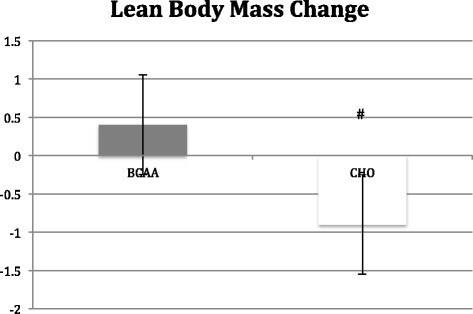

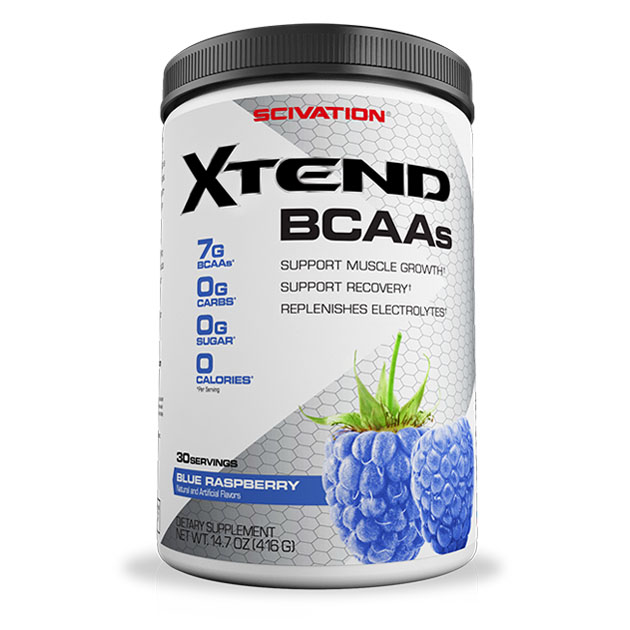


Comments and Discussion (Powered by the PricePlow Forum)